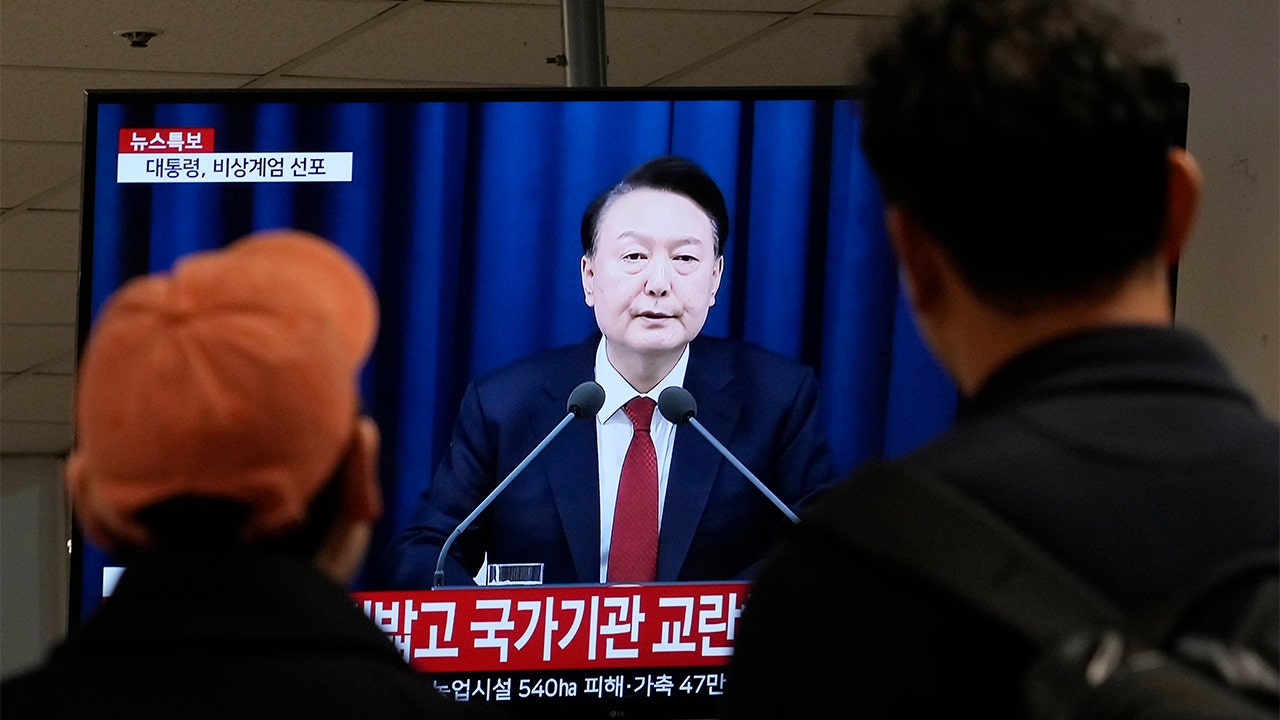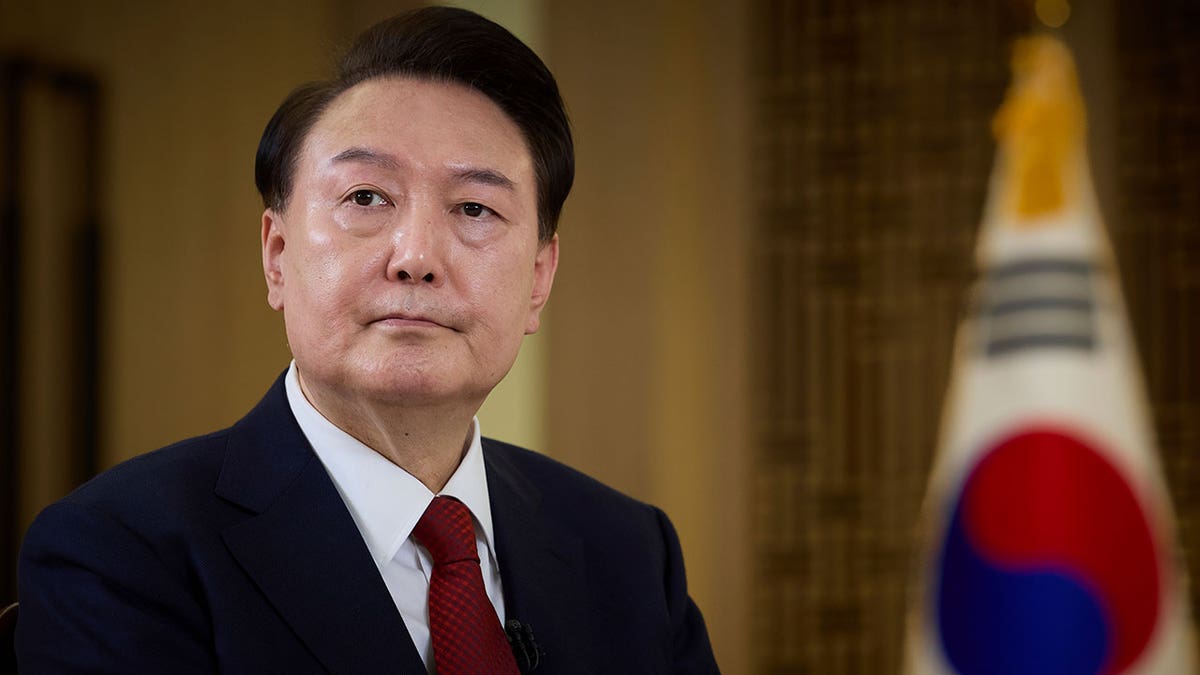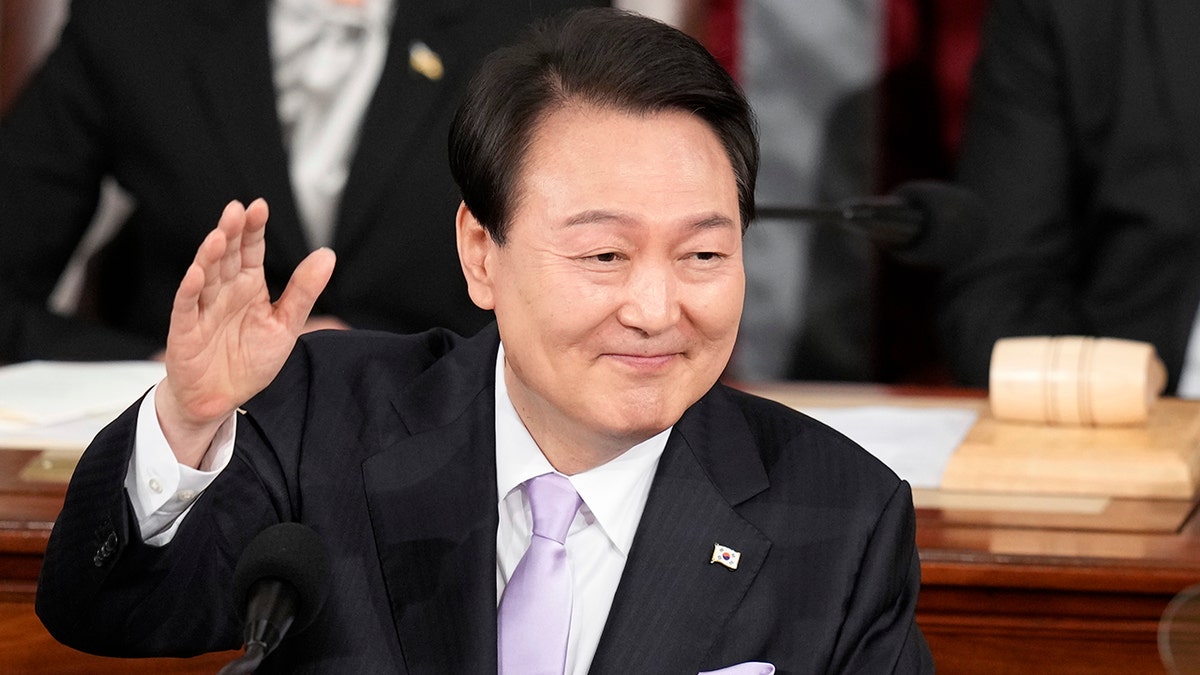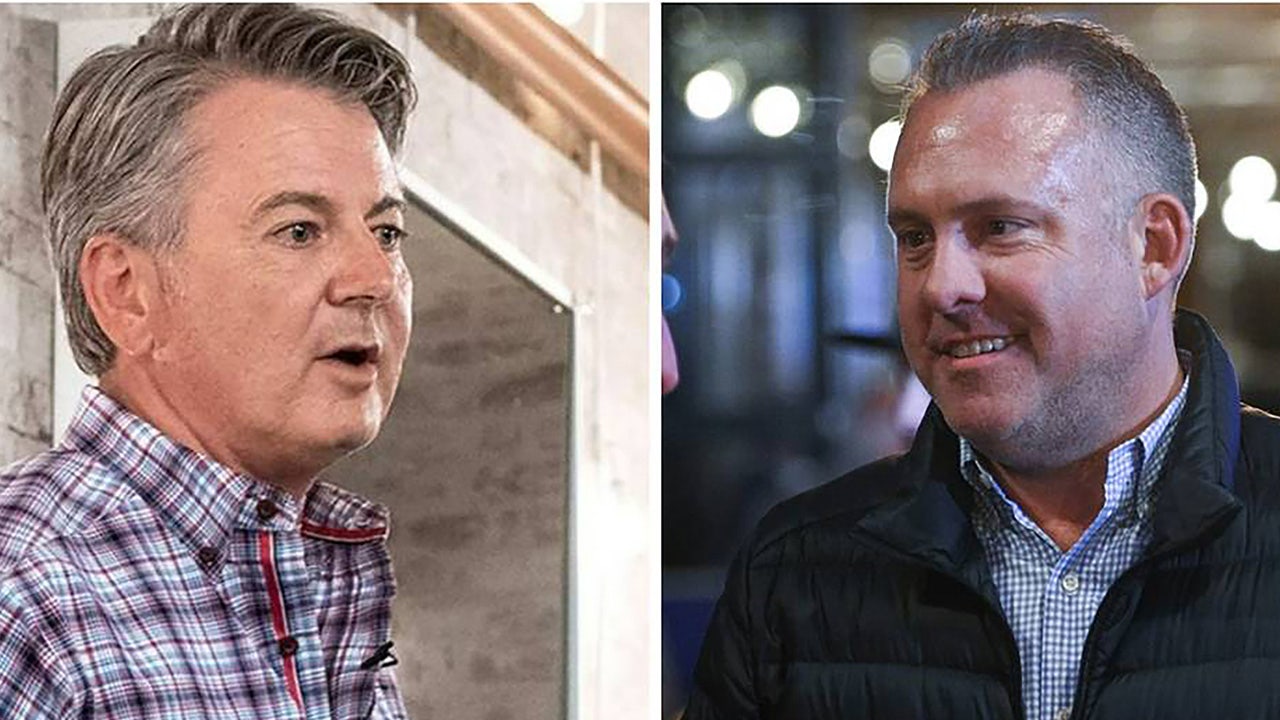World
South Korean leader facing mounting calls to resign or be impeached over martial law

South Korean President Yoon Suk Yeol on Wednesday was facing pressure from legislators and the public to step down or be impeached after he ended a martial law, which led to troops encircling parliament, that he called for just hours earlier.
Yoon’s senior advisers and secretaries offered to collectively resign. The president’s Cabinet members, including Defense Minister Kim Yong Hyun, were also facing calls to resign. All members of the South Korean State Council reportedly expressed their intention to resign.
On Tuesday night, Yoon abruptly imposed martial law and pledged to eliminate “anti-state” forces after he struggled to move his agenda through the opposition-dominated parliament. The martial law, however, was only in effect for about six hours since the National Assembly voted to overrule the president’s decision.
The martial law was formally lifted during a cabinet meeting at around 4:30 a.m.
SOUTH KOREAN PRESIDENT LIFTS MARTIAL LAW AFTER LAWMAKERS REJECT MOVE
People watch a TV screen showing South Korean President Yoon Suk Yeol televised briefing at a bus terminal in Seoul, South Korea, Tuesday, Dec. 3, 2024. (AP Photo/Ahn Young-joon)
Lawmakers submitted a motion to impeach the president over his martial law declaration.
The liberal opposition Democratic Party, which holds a majority in the parliament, threatened earlier in the day that its lawmakers would move to impeach the president if he did not resign immediately.
“President Yoon Suk Yeol’s martial law declaration was a clear violation of the constitution. It didn’t abide by any requirements to declare it,” the Democratic Party said in a statement. “His martial law declaration was originally invalid and a grave violation of the constitution. It was a grave act of rebellion and provides perfect grounds for his impeachment.”
WHY DID YOON’S PARTY LOSE IN SOUTH KOREA’S ELECTIONS AND WHAT TROUBLES DOES HE FACE NOW?

South Korean President Yoon Suk Yeol speaks during a pre-recorded interview with KBS television at the presidential office in Seoul, South Korea, Sunday, Feb. 4, 2024. (South Korea Presidential Office via AP, File)
Impeaching the president would require the approval of two-thirds of the parliament’s 300 members. The Democratic Party and other small opposition parties together make up 192 seats. But 18 lawmakers from Yoon’s ruling People Power Party cast ballots opposing the president’s decision when the parliament rejected Yoon’s martial law declaration in a 190-0 vote.
The leader of the People Power Party, Han Dong-hun, criticized Yoon’s martial law declaration as “unconstitutional.”
If Yoon is impeached, he will not have his constitutional powers until the Constitutional Court can rule on his fate. Prime Minister Han Duck-soo, the second in command in the South Korean government, would take over his presidential responsibilities.

South Korea’s President Yoon Suk Yeol waves as he arrives to address a joint meeting of Congress, Thursday, April 27, 2023, in Washington. (AP Photo/Alex Brandon)
Amid calls for Yoon’s Cabinet to resign, Han issued a public message asking for patience and calling for Cabinet members to “fulfill your duties even after this moment.”
Yoon’s martial law declaration was the first of its kind in more than 40 years. Scenes of military intervention had not been seen since South Korea achieved genuine democracy in the late 1980s.
The Associated Press contributed to this report.

World
How South Korea's Impeachment of President Yoon Could Happen

President Yoon Suk Yeol of South Korea is facing proceedings that could remove him from office after his imposition of martial law plunged the country into a political crisis. Members of South Korea’s opposition submitted a motion on Wednesday to impeach Mr. Yoon. Here’s how the process could unfold.
Only two previous presidents have faced impeachment proceedings in South Korea since the end of military rule in the 1980s.
A former leader of Mr. Yoon’s party, Park Geun-hye, was impeached and removed from office in 2017 on charges related to a sprawling corruption scandal. And in 2004, Roh Moo-hyun was impeached on charges of illegal campaigning, but the Constitutional Court later overturned that decision and reinstated him as president.
World
Archaeologists in Denmark discover over 100 weapons from the Iron Age during excavations

Excavations near Hedensted, Denmark, during the expansion of a freeway revealed several “well-preserved” ancient artifacts from the Iron Age that seemed to have been buried intentionally thousands of years ago.
During excavations at Løsning Søndermark conducted by archaeologists with Vejle Museums, numerous items were uncovered.
Archaeologists suggest the discovered weaponry was buried by a chieftain as an offering to a higher power, according to a press release from the museum released Nov. 22.
Over 100 weapons from thousands of years ago were unearthed during excavations in Denmark. (Vejle Museums )
FLORIDA PROFESSOR FINDS EVIDENCE THAT ANCIENT EGYPTIANS DRANK HALLUCINOGENIC COCKTAILS
The weaponry dates back to the Iron Age, according to the press release. The large number of artifacts found would have been enough to equip a small army.
“From the very first surveys, we knew this was going to be extraordinary, but the excavation has exceeded all our expectations. The sheer number of weapons is astonishing, but what fascinates me most is the glimpse they provide into the societal structure and daily life of the Iron Age. We suddenly feel very close to the people who lived here 1,500 years ago,” Elias Witte Thomasen, archaeologist and excavation leader from Vejle Musuems said of the find.
Among the artifacts found at the site were 119 lances and spears, eight swords, five knives, three arrowheads, one axe, a bridle, fragments of a bugle, fragments of at least two oath rings and several bronze and iron objects that have not been identified yet, according to the press release.

One hundred and nineteen lances and spears were among the artifacts discovered at the site. (Vejle Museums )
9-YEAR-OLD BOY FINDS 60,000-YEAR-OLD AXE AT SHOREHAM BEACH IN ENGLAND
Another significant item discovered at the site was a “very rare” chain mail.
The type of armor was worn by knights and military men, created by sewing iron rings to fabric or leather, according to Britannica.
This type of armor took great effort and access to special resources to create, making it a costly piece reserved for those of elite status.

The ancient artifacts were unearthed during excavations of Løsning Søndermark in Denmark. (Vejle Museums )
MOM, SON DIG UP ANCIENT OBJECT OFTEN FOUND NEAR BURIAL GROUNDS WHILE GARDENING
Additionally, there were fragments of two bronze neck rings at the site.
The rare, valuable objects uncovered from the site point to the power and influence the chieftain had.
Analysis of the items uncovered from the excavation continues, according to the press release.

Fragments of at least two oath rings were discovered by archaeologists at the site. (Vejle Museums )
Some of the artifacts may be put on display in early 2025 at Vejle Cultural Museum.
World
Brussels denies knowledge of Reynders's alleged money laundering

The criminal revelations regarding Didier Reynders, a former European Commissioners, continue to send shockwaves through Brussels.
The European Commission has categorically denied knowing anything related to the money-laundering scheme that Didier Reynders has allegedly operated for years, including during his five-year mandate as Commissioner for Justice.
The Commission also expressed its openness to cooperate in the ongoing investigation.
The presumed scheme involved purchases of lottery tickets and cash of unknown origin, according to revelations made by Follow The Money and Le Soir on Tuesday evening. Belgian police have already questioned Reydners and raided several of his properties.
The 66-year-old politician has not yet publicly replied to the accusations. It’s unclear how much money could have been potentially laundered.
On Wednesday, the Commission faced multiple questions about the suspected activities of Reydners, who left office over the weekend as the new College stepped in.
“We have, of course, seen the media reports about a case involving former Commissioner and former minister, Didier Reynders. We do not have any further information on this matter,” a Commission spokesperson said.
“If the Belgian authorities were to contact us, we are going to collaborate with them.”
Belgian police have not reached out to the Commission to obtain information or conduct searches, the spokesperson said. The criminal probe is said to cover Reynders’s mandate as Commissioner and his previous position in domestic politics.
According to the information by Follow The Money and Le Soir, Belgian authorities waited until Reydners left office on Sunday to go ahead with the raids. Before then, the Commissioner had been protected by immunity, similar to members of the parliament.
The immunity continues to apply once they depart the executive but only for acts performed “in their official capacity” as Commissioners, the spokesperson clarified.
The revelations involving Reydners sent shockwaves through Brussels as they coincide with the start of Ursula von der Leyen’s second mandate. Among her priorities, the Commission president has vowed to reinforce compliance with the rule of law to protect fundamental rights and the integrity of the EU budget.
“Strengthening the rule of law will be our daily work and duty,” von der Leyen said in her political guidelines.
The fact that Reynders, whose portfolio included the rule of law, is now the target of a criminal investigation has not gone unnoticed by his critics in Poland and Hungary, against whom Reynders and his team launched legal proceedings and froze EU funds.
“Mr Rule of Law from Brussels is currently unavailable to lecture Poland on how the justice system should function,” said Mateusz Morawiecki, the former prime minister of Poland, who introduced a highly controversial judicial reform during his tenure.
Kinga Gál, a leading MEP from Fidesz, Viktor Orbán’s party, also took a swipe, saying the criminal inquiry into Reynders was “the latest chapters of Brussels’ hypocrisy”.
“Instead of attacking Member States on ideological grounds, Brussels should first get its own house in order,” Gál wrote on social media.
Asked if the probe could diminish the credibility of the Commission in matters related to the rule of law and fundamental rights, a spokesperson refused to comment.
“We will absolutely not prejudge any outcome of the investigation,” the spokesperson said. “We have no further information and therefore we’ll have no comments whatsoever on what would be, at this stage, really premature.”
-

 Science1 week ago
Science1 week agoDespite warnings from bird flu experts, it's business as usual in California dairy country
-

 Health1 week ago
Health1 week agoCheekyMD Offers Needle-Free GLP-1s | Woman's World
-

 Technology1 week ago
Technology1 week agoLost access? Here’s how to reclaim your Facebook account
-

 Entertainment7 days ago
Entertainment7 days agoReview: A tense household becomes a metaphor for Iran's divisions in 'The Seed of the Sacred Fig'
-

 Technology6 days ago
Technology6 days agoUS agriculture industry tests artificial intelligence: 'A lot of potential'
-

 Sports4 days ago
Sports4 days agoOne Black Friday 2024 free-agent deal for every MLB team
-
/cdn.vox-cdn.com/uploads/chorus_asset/file/23906797/VRG_Illo_STK022_K_Radtke_Musk_Scales.jpg)
/cdn.vox-cdn.com/uploads/chorus_asset/file/23906797/VRG_Illo_STK022_K_Radtke_Musk_Scales.jpg) Technology4 days ago
Technology4 days agoElon Musk targets OpenAI’s for-profit transition in a new filing
-

 News2 days ago
News2 days agoRassemblement National’s Jordan Bardella threatens to bring down French government














